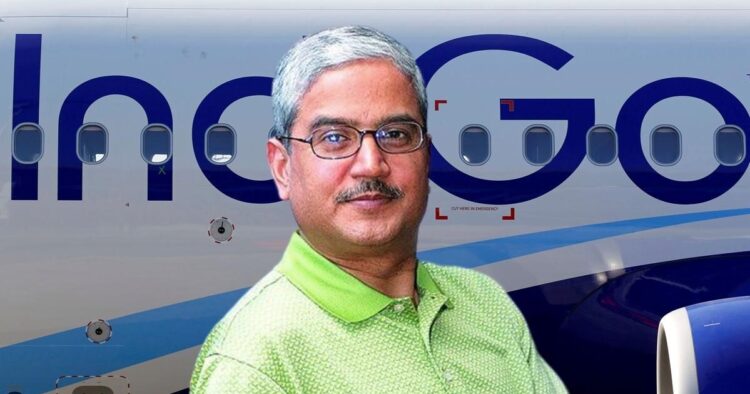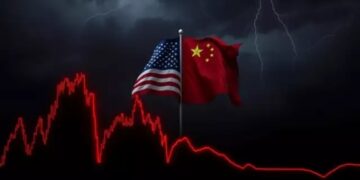Rakesh Gangwal, one of the co-founders of IndiGo, a prominent Indian airline, has plans to sell a portion of his shares in InterGlobe Aviation Ltd, the parent company of IndiGo. According to information obtained from a term sheet reviewed, Gangwal intends to sell up to 12.75 million shares, which accounts for 3.3% of his stake in the company. The sale, valued at approximately ₹3,730 crore ($450 million), will be conducted through a block deal with an offer floor price set at ₹2,925 per share. This price reflects a 5.8% discount compared to the last closing price of ₹3,105.7 per share on the National Stock Exchange (NSE).
Following the completion of this stake sale, Gangwal’s ownership in InterGlobe Aviation will decrease to 8.42%. The sale will also result in a reduction in the promoter group’s overall holding in the company. Notably, Morgan Stanley, JP Morgan, and Goldman Sachs have been appointed to manage the sale on behalf of the promoter.
Over the past year, IndiGo’s stock has shown significant growth, experiencing a surge of 67.35%. This growth outpaces the 23% gain observed in the benchmark Sensex during the same period. This sale by Gangwal is part of a series of similar transactions undertaken previously. In September 2022, he and his family sold a 2.8% stake in InterGlobe Aviation for ₹2,000 crore, followed by another sale in February 2023, where they disposed of a 4% stake for ₹2,900 crore.
In addition to Rakesh Gangwal’s divestment, there have been previous instances of stake sales within the promoter group. On August 16, Gangwal’s wife, Shobha Gangwal, who is also part of the promoter group, sold her entire near 3% stake in InterGlobe Aviation for ₹2,801.8 crore through a bulk deal on the Bombay Stock Exchange (BSE). These transactions collectively indicate a strategic move by the promoter group to gradually reduce their stake in InterGlobe Aviation.
Overall, Rakesh Gangwal’s decision to sell a portion of his stake in InterGlobe Aviation comes amidst a backdrop of strong market performance for IndiGo and reflects a broader trend of strategic divestment within the promoter group.

















Comments